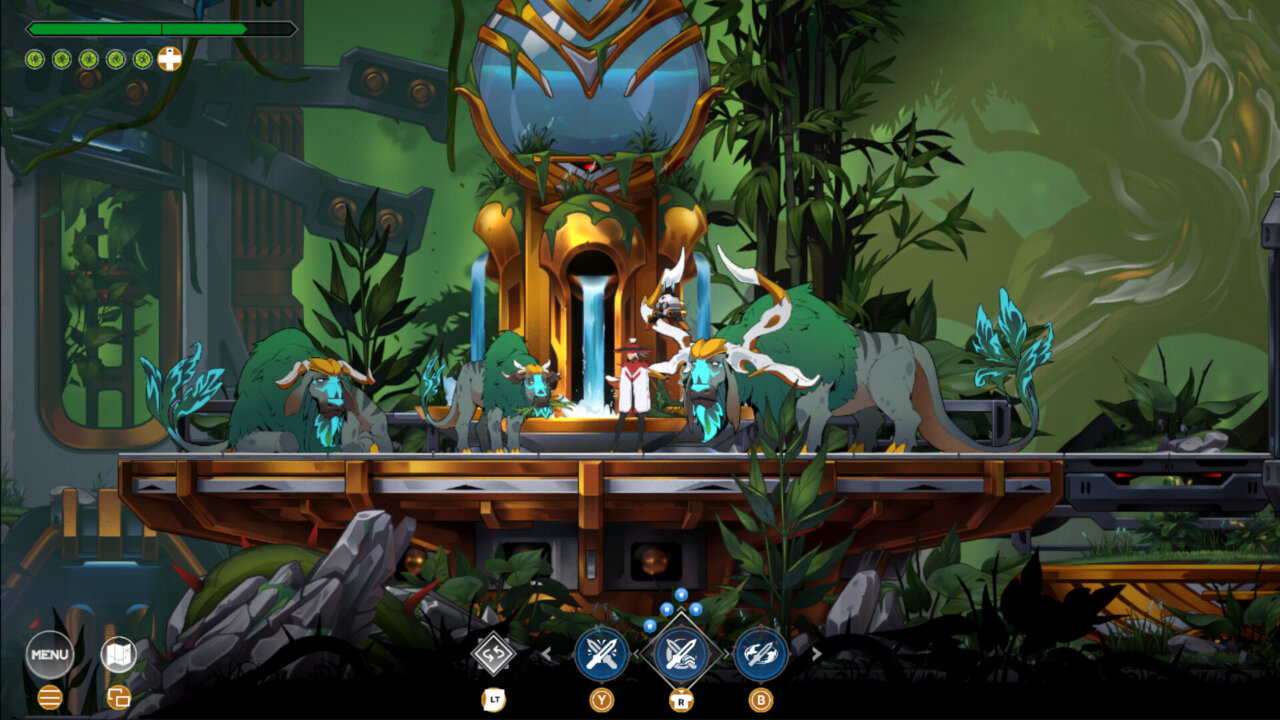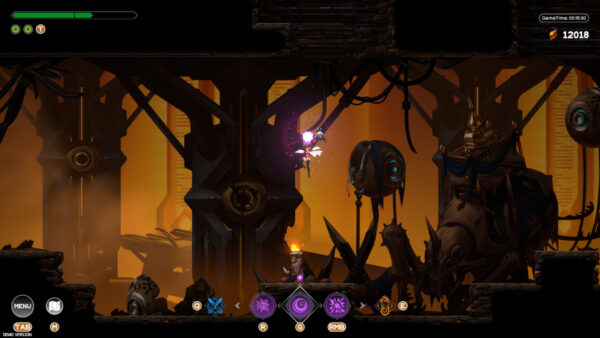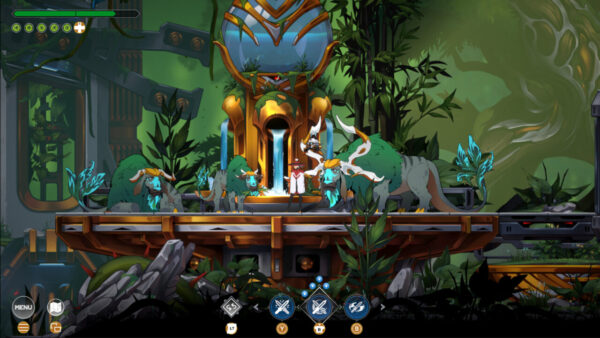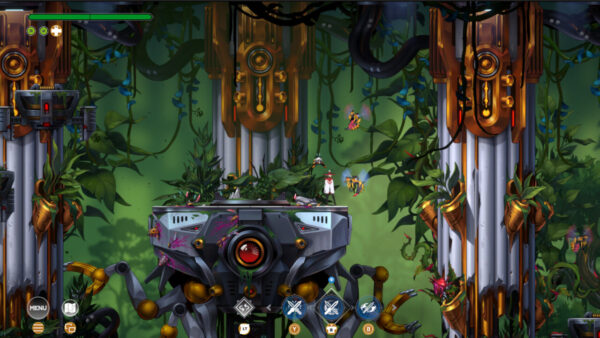Publisher: Headup
Developer: Exogenesis Studios
Medium: Digital
Players: 1
Online: No
ESRB: Not Rated
Can a Metroidvania platformer can be too big? If INAYAH – Life after Gods is anything to go by, the answer to that question is a pretty resounding “yes.”
Obviously, as complaints go, you could do a lot worse. But I feel like it’s a problem for INAYAH for a pair of reasons: its map and its save system. Unsurprisingly, the two are linked.
In terms of the map, it’s huge – and while that may usually be a good thing, here you have a bunch of complicating factors that turn it into a negative. Each room is absolutely enormous, so if you’re trying to find anything specific, you’ll usually be searching for awhile. On top of that, there’s not a lot of variety as far as visuals go (especially early on), so it’s very easy to get lost, since you can’t always tell if you’ve already visited a room. And to round things out, the map in the pause menu is seldom helpful – it gives you a vague idea of what room you’re in and whether you’re searching for anything in that room, but if you’re trying to find an exit, it’s a lot less useful.
At the same time, INAYAH’s save system is a little lacking. You can only save at specific points in specific rooms, and those points are fairly spread out – which means that if you want to put the game down, you may need to backtrack awhile to rediscover the save point or else risk losing a bunch of progress. Combine those two things – giant rooms on a giant map with save points sparsely scattered throughout – and you can see where INAYAH goes wrong.
Which is a shame, because it does some things very right. Or, more specifically, it does one thing very right: it’s absolutely gorgeous. The game boasts on its Steam page about featuring “2D art and meticulously hand-drawn frame-by-frame animations”, and you can really see it everywhere you go. Even if it sometimes feels like the game is reusing animations, it still pops off the screen everywhere you go.
As for the meat and potatoes of the game – that is, its combat and its traversal – there’s really not much to say about it. In those respects, INAYAH is pretty much exactly what you’d expect. You get your choice of weapon early on, and you can upgrade them throughout the game with a pretty thorough skill tree, but really, there’s nothing in INAYAH, gameplay-wise, that we haven’t seen before.
Which means that we’re left to judge INAYAH on things other than its gameplay. And even if there’s some good there (specifically, the artwork), that’s balanced out by design decisions that make the game a lot more annoying than it should be.
Headup provided us with an INAYAH – Life after Gods PC code for review purposes.








